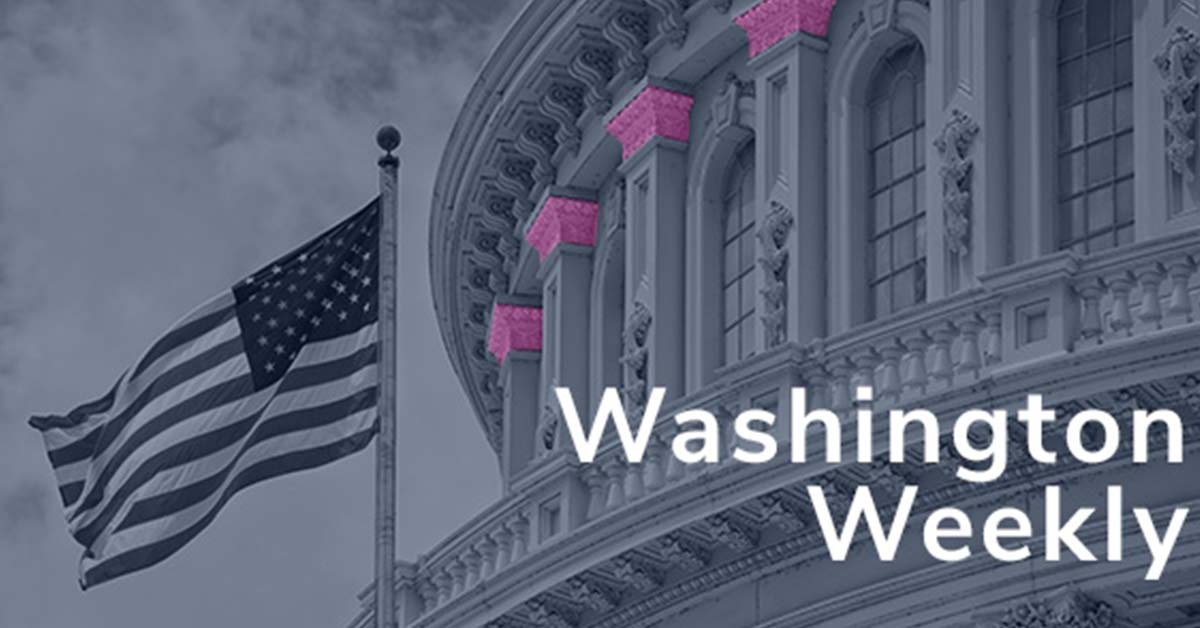
The House
The House is back in session following the July 4th recess. The House Appropriations Committee will mark up its Subcommittees’ budget proposals after each Subcommittee’s respective markup. Key subcommittee bills are Commerce, Justice, and Science; Energy and Water Development; Labor, HHS, and Education; and Transportation-HUD.
The Energy and Water Subcommittee’s bill proposes spending $53.2 billion, an increase of $1.5 billion from FY2021, to develop clean energy, address the pressing historic drought in the West, and increase necessary funding for the Army Corps of Engineers.
The Commerce, Justice, and Science bill proposes spending $81.3 billion, a $10.2 billion increase from FY21. Under the bill, the Justice Department, Commerce Department, and NASA would each see budget increases of around $2 billion. However, those increases may bring caveats. House members proposed a measure that would bar NASA, the White House Office of Science and Technology Policy, and the National Space Council from using funds for coordinated programs with China. Additionally, Justice Department police grants would be conditioned on local police enforcing policy changes such as ending racial profiling, certain no-knock warrants, and chokeholds.
The Subcommittee on Labor, HHS, and Education’s bill totals $253.8 billion – a $2.2 billion increase from FY21, which is $400 million more than the White House’s request. The bill in part would repeal Hyde Amendment language which bans the use of federal funds for abortions, while also nearly doubling Title I grants for low-income students.
The Transportation and HUD Subcommittee proposes increased funding to transform public transit with zero-emission buses, passenger rail, and other public transit. The bill totals $105.7 billion, surpassing FY21 funding by $18.7 billion.
Though Democrats’ sweeping elections bill, H.R. 1, stalled in the Senate after passing the House, the House Administration Subcommittee will continue holding hearings and building a legislative record for voting rights measures. They do so in preparation to pass the John Lewis Voting Rights Act, which will restore and update provisions from the Voting Rights Act previously struck down by the Supreme Court in Shelby County v. Holder eight years ago. Democrats say this, and the fallout of former President Trump’s 2020 defeat, fueled Republican states to pass restrictive voting measures. The House Administration Subcommittee is also examining the Constitution’s Elections Clause to determine to what extent – if any – Congress can enact federal voting measures.
The House will also conduct hearings to consider other bills:
- The House Natural Resources Committee will consider multiple bills in its ocean bills markup, including H.R. 3764 requiring the National Oceanic and Atmosphere Administration to provide ocean-based climate solutions to reduce carbon emissions and global warming.
- The House Transportation and Infrastructure Subcommittee on Water Resources and the Environment is set to consider President Biden’s FY22 budget through agencies’ perspectives.
- The House Armed Services Tactical Air and Land Forces Subcommittee will consider the FY22 Department of Defense budget request for fixed-wing tactical and training aircraft programs.
The Senate
The Senate is also back in session and will consider a number of measures at the committee level:
- Voting rights measures will be discussed in the Senate Judiciary’s Constitution Subcommittee hearing on the Voting Rights Act.
- The Senate Homeland Security and Governmental Affairs Committee will markup 15 bills, touching upon cybersecurity, supply chains, and ways to prevent wildland fires.
- The Senate Energy and Natural Resources Committee will consider a multi-pronged bill to invest in developing, innovating, updating, and securing outdoor and energy infrastructure.
- The Senate Foreign Relations Committee will hear a resolution to repeal previous Authorizations for the Use of Military Force and recent U.S. military strikes in Syria and Iraq.
- The Senate Judiciary Subcommittee on Competition Policy, Antitrust, and Consumer Plans will hold a hearing concerning conduct that chills competition in the prescription drug market.
The Administration
The Administration is also focusing on voting rights this week. On Monday, Vice President Harris discussed Republican-led bills which Democrats argue deny voting access. On Tuesday, President Biden will deliver a speech on voting rights.
Over the weekend, G20 finance ministers endorsed a new global tax agreement, which includes imposing a global minimum tax of at least 15% on corporations. U.S. Treasury Secretary Janet Yellen began constructing a timetable for the Administration and Congress to adopt these measures. This will be a complex process, as each measure could require different methods of congressional approval based on their constitutional definitions.
For example, while some measures defined as treaties require a 2/3 Senate vote, others could be passed via reconciliation using a bare-majority Senate vote. Key Republicans, Senator Mike Crapo (R-ID) and Representative Kevin Brady (R-TX), have already expressed their concerns over the tax agreement to Secretary Yellen.
Becker’s Federal Lobbying Team will continue to monitor these developments as they evolve and will share with you as soon as information becomes available.